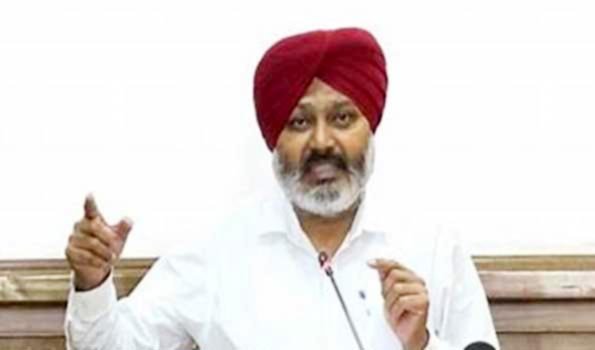New Delhi, May 24 (UNI) The Modi Government is committed to making India a global hub for innovation, research, design and engineering with manufacturing remaining a strong focus, in which Japanese businesses can participate to co-innovate, co-create and co-produce in India for both domestic and global markets, External Affairs Minister S Jaishankar said today.
In his virtual address at the Nikkei Asia 2024 Future of Asia Forum, under the talk titled ‘India’s role in an Uncertain World’, the EAM said that India seeks to lead by example, and cited ongoing Indian elections as an example “that democracies can really deliver”.
He said the delivery is also seen in socio-economic benefits to the people, including digital delivery of public goods and services or the ease of living, the start-up and innovation ecosystem or ease of doing business. India’s infrastructure progress is also keeping pace, including roads, railways, metros. “This is the India that seeks to attract more partnerships from Japan,” he added.
Obliquely targeting China and its hegemonistic policies in the South China Sea, he said India believes in a free, open, safe, secure, peaceful, prosperous and stable Indo-Pacific is a necessary pre-condition for peace, security and prosperity of the world. “In that endeavour, the India-Japan Special Strategic and Global Partnership is a key factor”.
EAM said that “a strong relationship with Japan, built on our shared convergences and common values is in our mutual interest”.
He called for promoting more centres of production, which will ensure resilient and reliable supply chains and promotion of connectivity flows that are market-based and multilateral. “Our economies complement each other in many respects and we must explore those opportunities more seriously. They span a wide spectrum from health and agriculture to technology and manufacturing,” he added.
He said that India and Japan, as the major economies of Asia also have a particular obligation to enhancing its stability and security, and called for building defence cooperation and interoperability and commitment to supporting peaceful resolution of disputes and respect for international law, including the UNCLOS.
“We see alignment between India’s Act-East Policy, Indo Pacific Oceans Initiative, and Japan’s Free and Open Indo-Pacific Vision, as well as our shared support for ASEAN Outlook on the Indo-Pacific,” he added.
He cited the bilateral cooperation in areas such as Industrial Competitiveness, Clean Energy Partnership, Digital Partnership and Semiconductor Supply Chains, as well as infrastructure development, energy, space, food-processing, science and technology, healthcare, wellness, and R&D cooperation, and urged that they need to take full advantage of each of these opportunities.
Jaishankar cited Japan as an important development partner for India, including in its cooperation in the North-East and the Mumbai-Ahmedabad High Speed railway project.
“We have a shared objective to realize 5 trillion yen Japanese investment in India by 2027. Each of these facets are crucial to the further evolution of our relationship,” the EAM said.
However, the bilateral trade and commercial relations remain well below potential, which is around USD 23 billion, and progress in deepening of investments has also fallen short of expectations, he pointed out.
“More work is also required in supportive domains, such as expanding Japanese language skills in India, increasing mobility of Indian skills and talents, growing the number of tourists or ensuring serious educational exchanges,” the EAM said.
“2023 was an important year for India and Japan as chairs of two key international groupings – the G20 and G7. 2024 is also a landmark year, as we mark the 10th anniversary of establishment of India-Japan Special Strategic and Global Partnership. Our people-to-people relations are expected to get a boost through the celebration of 2024 as “India-Japan Year of Tourism Exchange”, the EAM said.
“Globally also, India and Japan are close partners in our efforts towards a reformed multilateralism, including UNSC reforms. Our cooperation in Quad is a force for good, increasingly recognized by the world as such,” he added.
UNI RN
He said the contours of multipolarity are more visible today, than ever before and the challenges facing the global order has only underlined the importance of cooperation and coordination amongst countries, particularly in Asia. “We will work with Japan and our Asian partners to realize a secure, sustainable and prosperous future of Asia.”











